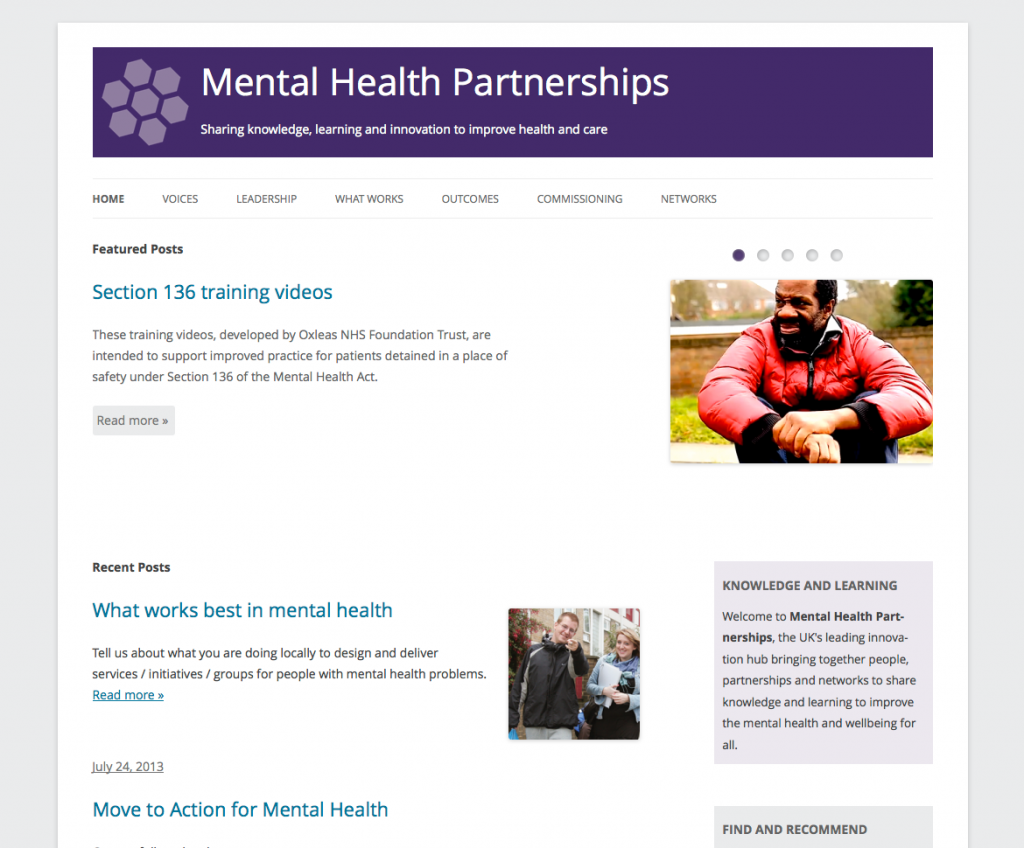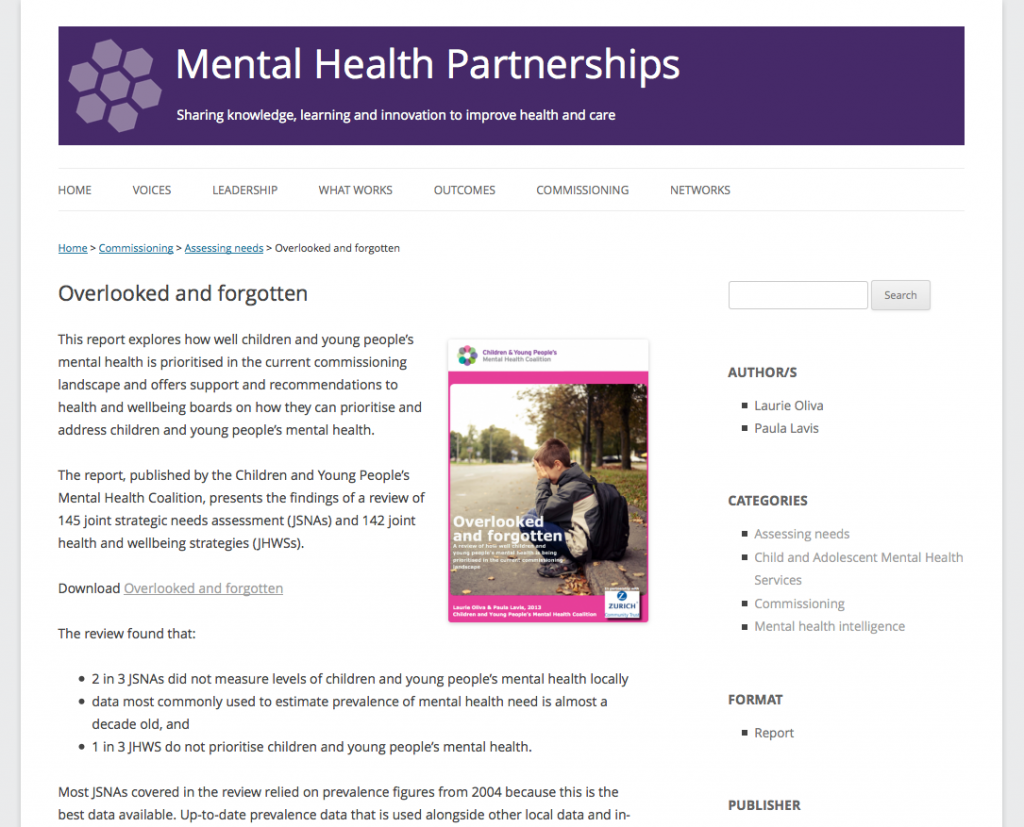Developing a specialist knowledge portal https://mentalhealthpartnerships.com, bringing together networks, organisations, groups and individuals to share knowledge and learning to improve services and the mental health and wellbeing of communities.
Clinician led partnerships for sharing knowledge, learning and innovation
Mental Health Partnerships supports clinician led partnerships to accelerate and improve commissioning and service redesign in mental health care. It offers a single point of access to curated summaries about the latest research, policy and practice developments as a vital component of improving mental health and delivering care.
The portal is organised around the commissioning cycle, providing key resources on:
- the evidence base
- needs assessment and economic modelling
- different interventions, models of care and service specifications
- outcomes indicators and measurement
- quality and safety, and
- informatics and intelligence.
The knowledge portal is supported by dedicated knowledge managers whose role is to identify, summarise and organise information about ‘what works best’ in mental health, dementia and neurology. Curated information about ‘grey literature’, including publications from Government departments, think tanks, private, public and third sector organisations, sits alongside information about local initiatives and innovations that improve the health and wellbeing of local communities.
This dedicated knowledge management input helps to:
- provide busy practitioners with quick access to trusted and easily digestible knowledge and evidence, promoting the transfer of clinical excellence and competence in evidence based practice
- promote information literacy empowering people to ask questions, find, share and use information about innovative practice in the design and delivery of services
- encourage effective collaboration across teams, organisations and sectors that translates knowledge into safe and effective patient care
- nurture a person-centred enabling workforce by developing the “information support role”, building health and social care staff confidence and competence in sharing knowledge with patients, carers and the public.
Find, contribute, and recommend
Mental Health Partnerships enables users to,
- access knowledge: providing quick access to summarised information about the latest research, policy and practice developments in the subject area
- share, enquire, explore: empowering users to upload and share knowledge and information about positive practice
- recommend/comment: encouraging users to comment on and recommend resources to others
Network, learn and share
Mental Health Partnerships enables users to,
- network and communicate: ensuring that the voices of people with lived experience remain at the forefront of the challenge to improve access to high quality, evidence-based treatment and care
- identify and access expertise: in leadership, commissioning, service improvement and outcomes focussed service redesign.
What works in mental health
The Mental Health Partnerships knowledge portal contains a knowledgebase of local innovations showcasing what works best in mental health. Users can explore and share information about innovative practice in the design and delivery of services that improve the health and wellbeing of local communities.
The editorial team uses an evidence hierarchy to evaluate the innovations that users submit. This includes: evidence of service user experience and opinion, outcome information, evidence of clinical support, durability and replicability, readily available contact. The innovations are published if they meet these eligibility criteria.
Expertly curated content promoting clinical excellence
The local innovations showcasing what works best in each of the clinical domains sit alongside expertly curated summaries of research reports, best practice guidance and resources that support service innovation and improvement. Dedicated knowledge managers curate high quality bite-sized information to help busy practitioners get quick access to trusted and easily digestible knowledge and evidence. This promotes the transfer of clinical excellence and competence in evidence based practice, as integral to the processes of patient care.






